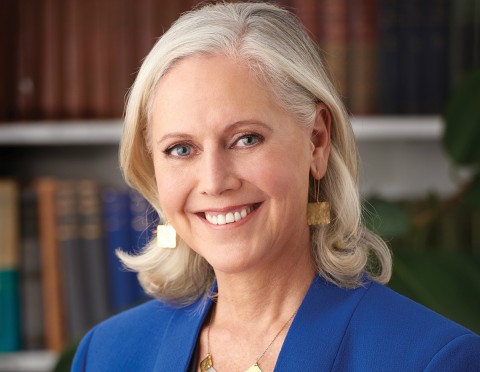Sin and grace in public discourse
“We’ve lost the capacity to talk about the universality of brokenness—and belovedness.”

Serene Jones became president of Union Theological Seminary in New York in 2008. Before arriving at Union, she taught at Yale Divinity School, where she also chaired the university’s program in women, gender and sexuality studies. She has been a contributor to HuffPost as well as many scholarly books and journals. Jones is the author of Calvin and the Rhetoric of Piety, Feminist Theory and Christian Theology, and Trauma and Grace. Earlier this year she published Call It Grace: Finding Meaning in a Fractured World.
You suggest in the beginning of your book Call It Grace that theology begins by looking at one’s own life and asking, So what’s it all about at the deepest level? What drew you toward this explicit foray into autobiographical writing?
I set out to write a book that would cover what major theologians said about sin and grace because I thought they were important ideas for this moment in American history when we have such sharp partisan divides and people are demonizing one another. This classical notion that we sin, that we’re all broken, and that in grace we’re all equal and loved—these ideas are very important politically.




